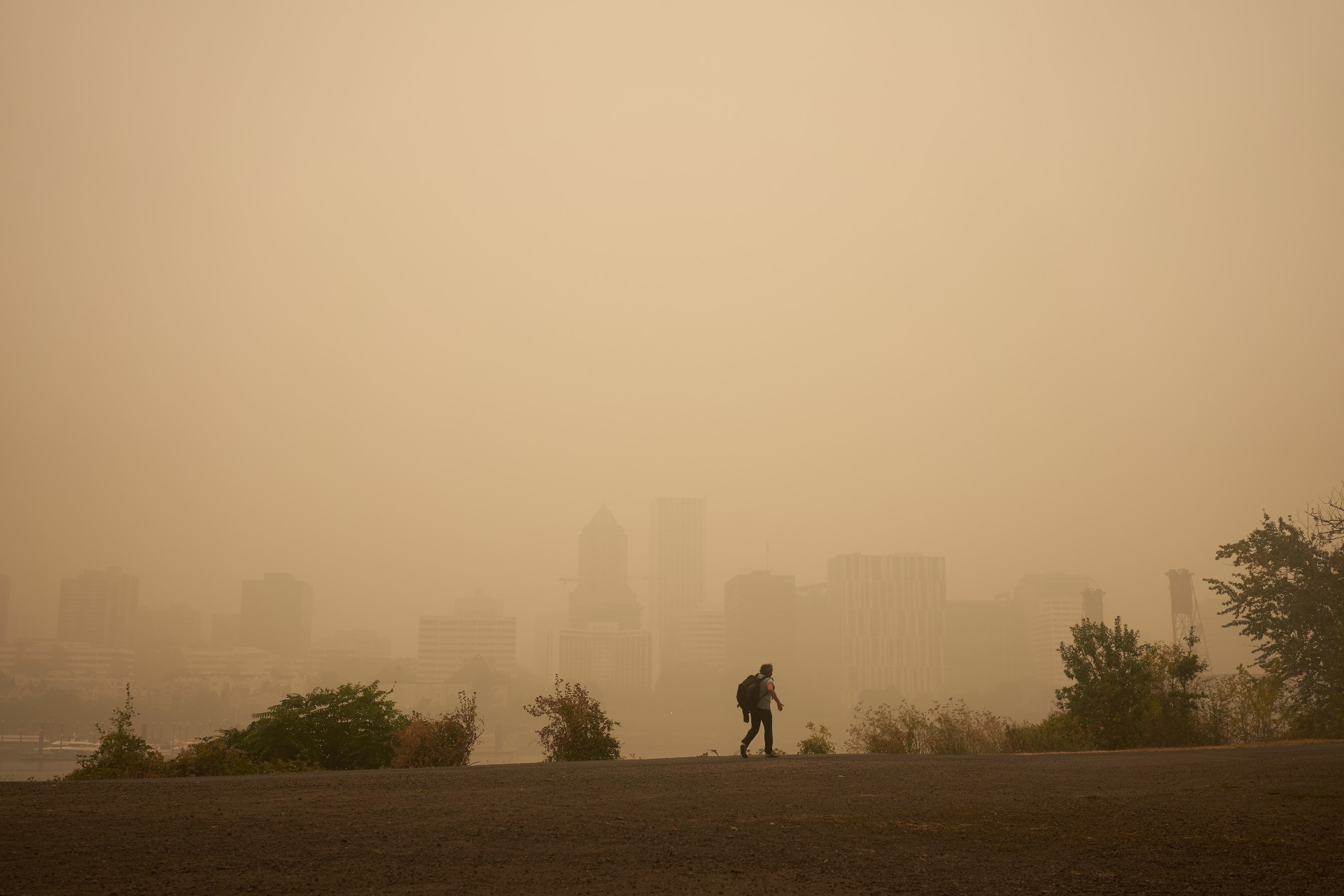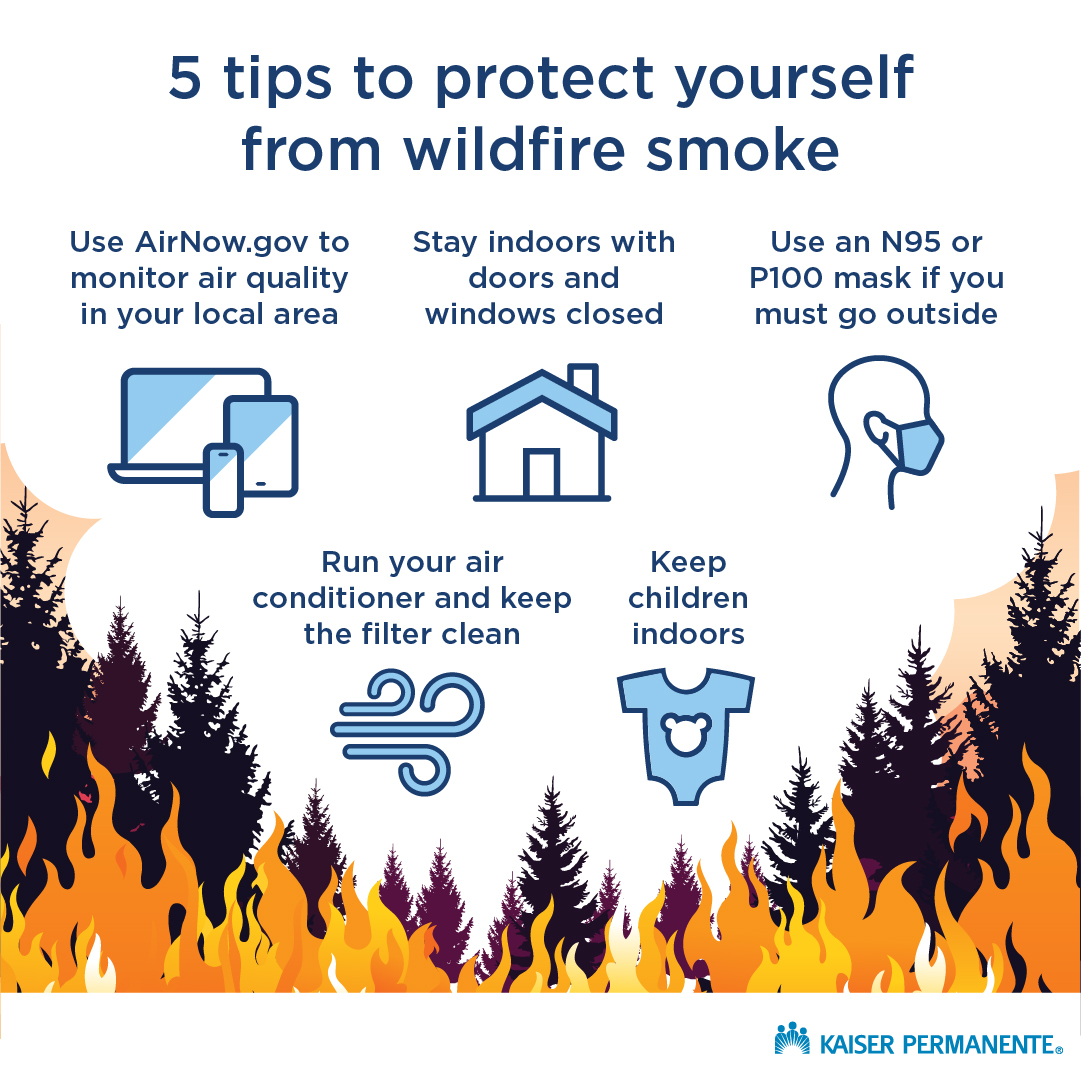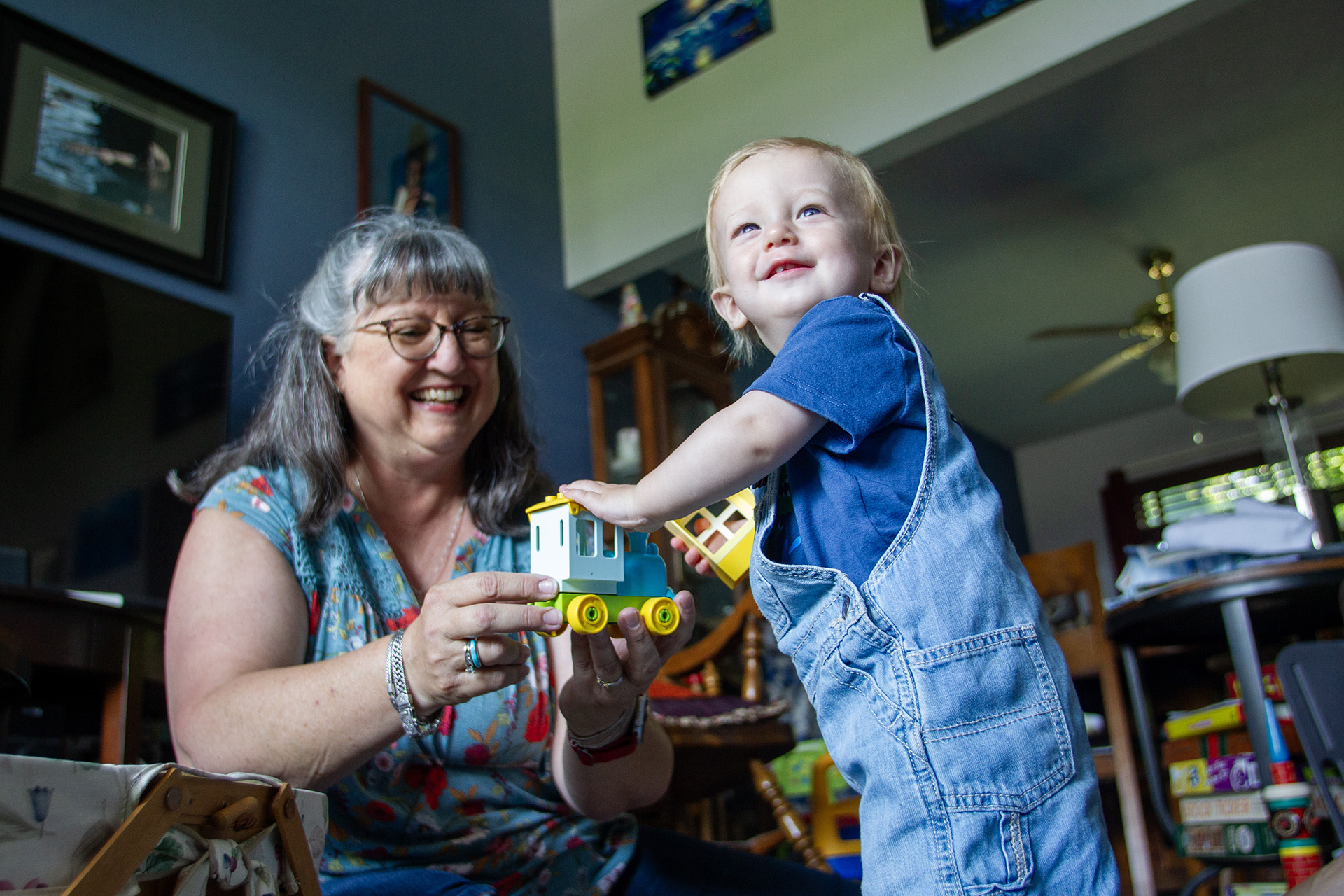As temperatures hit record highs nearly every summer throughout the country, a longer, more severe wildfire season is the new normal. Wildfire smoke can cause both immediate and long-term health impacts. And the emotional toll of such disasters can be devastating.
Being prepared and knowing what to do in the event of an emergency can keep you physically safe and reduce the toll on your mental health.
A danger to everyone
Wildfire smoke can affect people who live up to hundreds of miles away from the fire, according to Thomas Dailey, MD, a pulmonologist and critical care medicine physician for Kaiser Permanente in Santa Clara.
Once a person breathes it in, pollution from wildfire smoke, called “ultrafine particulate matter,” can pass into the bloodstream. Although people with preexisting lung conditions, including asthma, emphysema, and chronic obstructive pulmonary disease, and children are at higher risk for developing health-related issues, smoke can affect anyone.
“This is very toxic material,” Dr. Dailey said. “It has been associated with an increased risk of heart attack, stroke, and inflammation, and it can impact lung function.”
Dr. Dailey, who is a Bay Area Air Quality Management District board member, added that on days when the local health department says it’s unsafe for people with preexisting conditions to be outside, it means it’s unsafe for everyone.
Long-term health effects
The negative impacts of smoke exposure are cumulative: The more days you’re exposed, the higher your risk for injury.
“We do think smoke has long-term health effects, but we don’t know the exact outcomes yet as we’ve just begun living with yearly exposure,” Dr. Dailey said. “There is data that shows a correlation of asthma in children and poor air quality.”
Preventing exposure
On poor air quality days, stay indoors with your windows closed. Repair unsealed windows or doors. Have enough food and water in the house to stay inside for multiple days, if necessary.
When you need to go outside, wear an N95 or P100 mask, not a cloth mask or neck gaiter. Avoid both outdoor and indoor aerobic exercise.
Mental effects of wildfires
For people who have lost their homes, been evacuated due to fire, or had brush burning in their backyards, the emotional effects can be like the symptoms of post-traumatic stress disorder.
“During the summer or on windy or red flag warning days, people can become more anxious or irritable, have trouble concentrating, and relive past traumatic experiences,” said Emily Porch, MD, an adult and child psychiatrist for Kaiser Permanente in Santa Rosa.
For people who were not as directly impacted but live within a fire state and see the devastating news, their stress can look like they are avoiding reality or becoming obsessed with the fire, Dr. Porch said.
Additionally, some people might suppress their emotions until they surface in panic attacks, while others can become consumed with trying to control the situation.
Lessening the anxiety
One of the best ways to reduce the stress of fire season is to be prepared, Dr. Porch said. Prepare your go bag. Know your local resources in case of evacuation, evacuation routes, and important contacts.
Recognizing your emotions and talking openly about your concerns can also help.
“Remember that your community is having a similar experience,” Dr. Porch added. “Reach out, talk to your neighbors, and help one another.”
The wellness app Calm offers excellent self-care tools and is available to Kaiser Permanente members at no charge.
Kaiser Permanente members can also get care from a mental health therapist.





